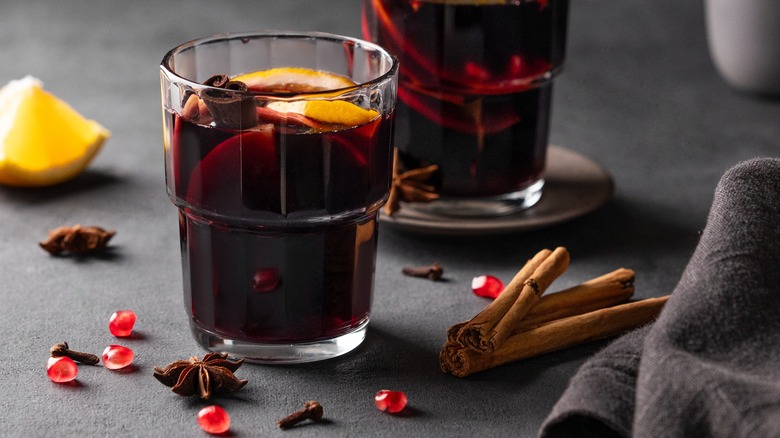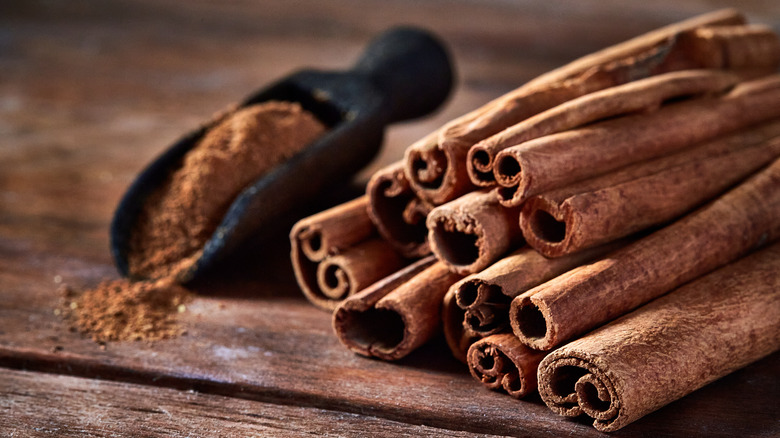These Are The Best Spices For Mulled Wine
When winter finally rears its head and the cold comes sweeping in, few things are more comforting than a steaming cup of mulled wine. Whether you call it glühwein like the Germans or glögg like the Swedish, this wonderfully Christmas-y concoction is the ultimate winter warmer. But instead of cracking open a pre-made bottle and chucking half an orange in there, consider making your own mulled wine recipe this year. It's so much better, and really doesn't take much effort at all — except for choosing from a seemingly overwhelming number of spices.
To find out which spices are essential for mulled wine, we asked Gabriel Corbett, sommelier of the Michelin-starred bar Jônt in Washington D.C. He uses spices that imitate the flavors a wine might absorb when it ages in oak. These will work with the natural flavors of the wine itself to really elevate it, rather than overpowering it with sweetness and spice. "Cinnamon, nutmeg, cloves, allspice, [and] star anise" are all great options, according to Corbett.
These spices are warming, subtly sweet, and nutty, lending your wine a spicy complexity. They also happen to be classic mulled wine additions, and will surely give your drink a deeply comforting, familiar nose and flavor that is sure to be a holiday hit.
How much spice to add to mulled wine, and some other options
When making mulled wine, the amount of spices you use is just as important as what types you pick out. "A lot of these spices are particularly pungent so you don't need to use a lot," Gabriel Corbett told us, "especially if you're using a wine that already saw some oak [aging]." Of course, quantities come down to personal taste, but he recommends using "[a] couple sticks of cinnamon, a bit of nutmeg, two to four cloves and allspice berries," and finally "two to three pods of star anise." That should be plenty for a sizable batch of wine (about a liter and a half), but you can adjust the ratio accordingly. Corbett notes that "if you want to have that warming sensation you might want to use more!"
You can also choose different spices to complement the type of vino you're using (check out some expert picks for mulled wine). For white wines — yes, you can mull white varieties, too –- you can use dried berries and vanilla, to really bring out those fruitier, brighter notes. For bold, dark reds, you could use coffee beans or even dried ancho chiles, which will accentuate the heat, spice, and sweet earthiness found in more intense wines. Red wine will also work beautifully with less traditional aromatic combinations. Honey and rosemary, for example, will bring a gorgeous woodsy, wintery profile, making for the perfect fireside treat on a freezing cold night.


